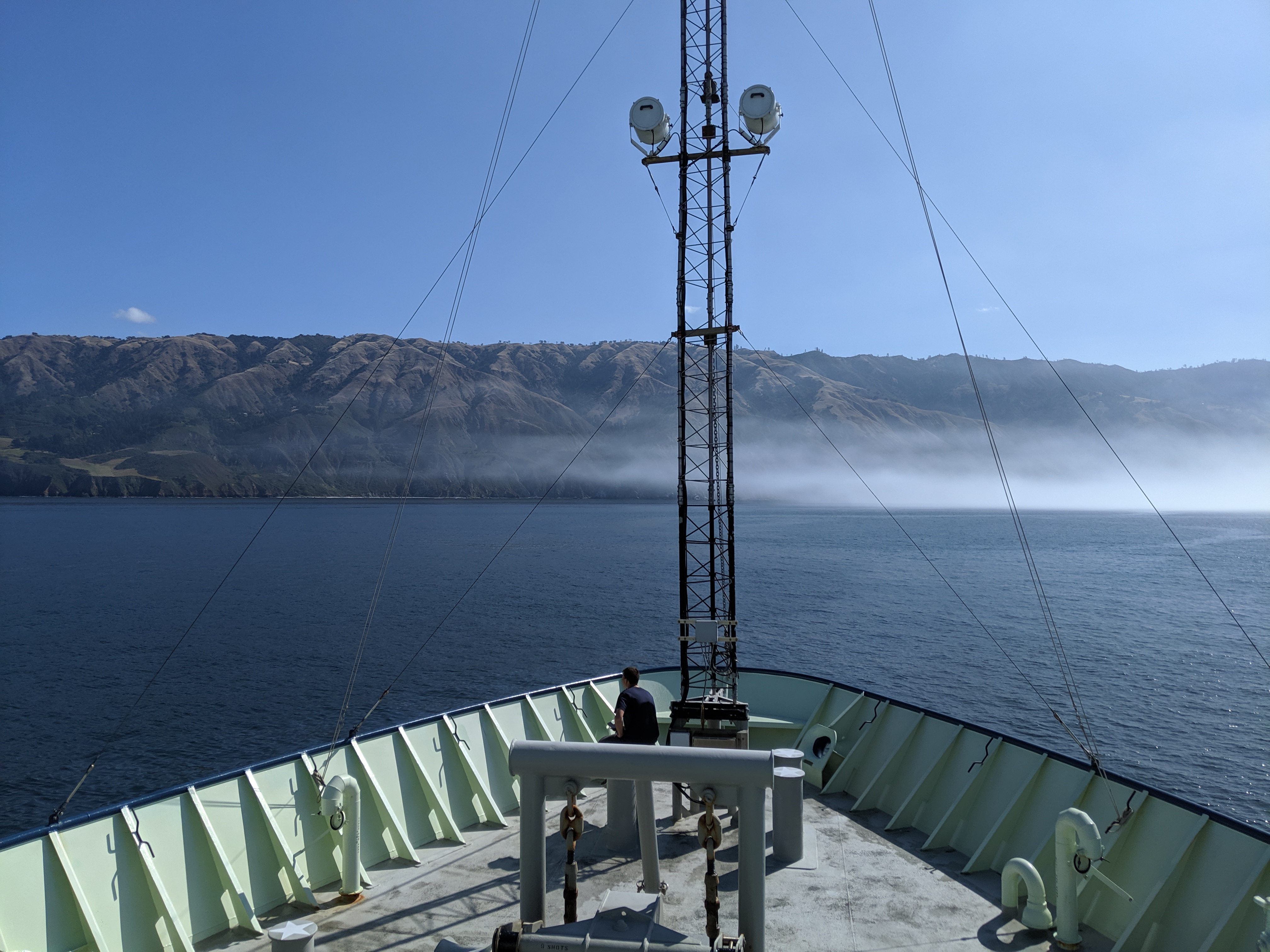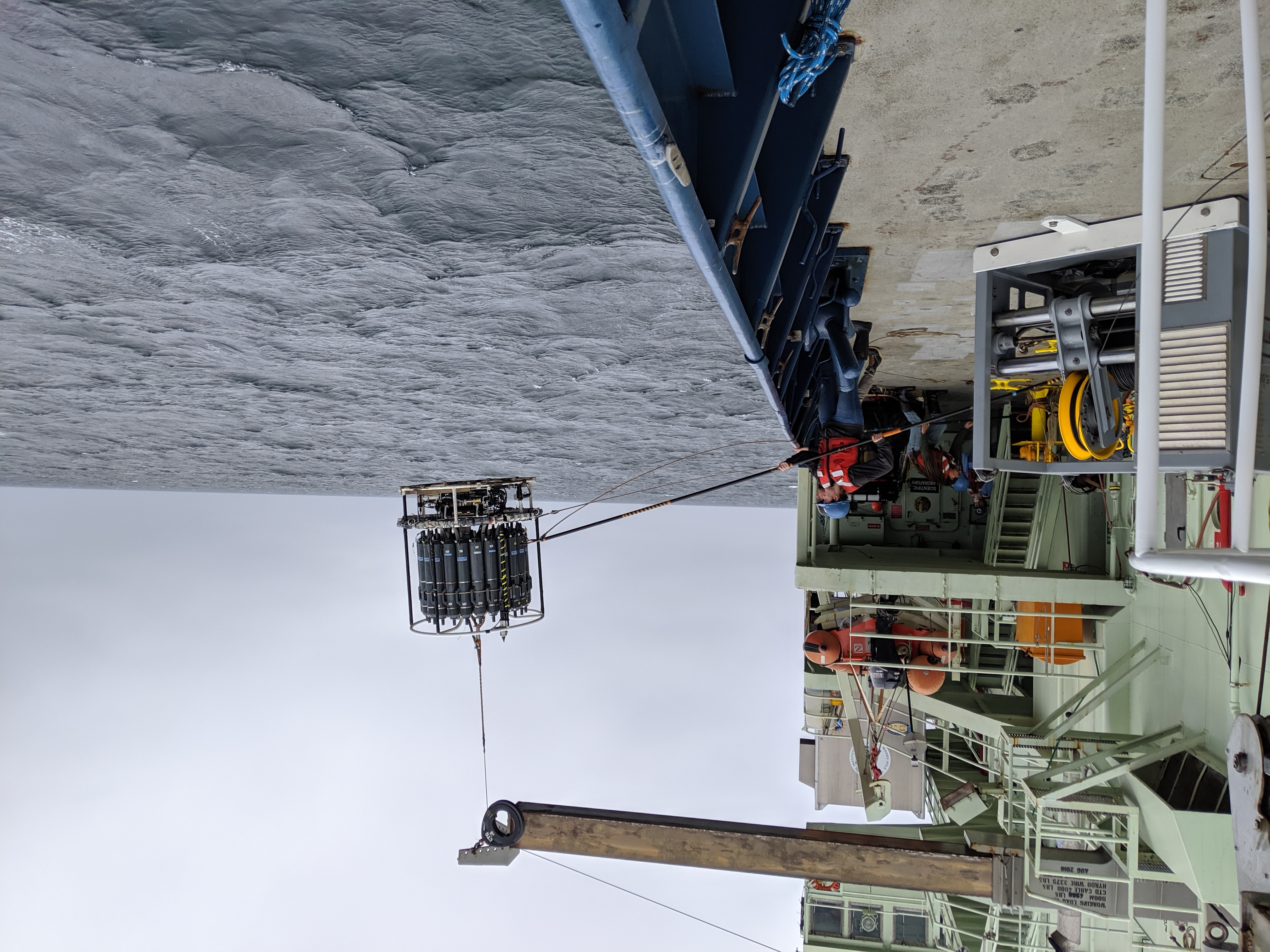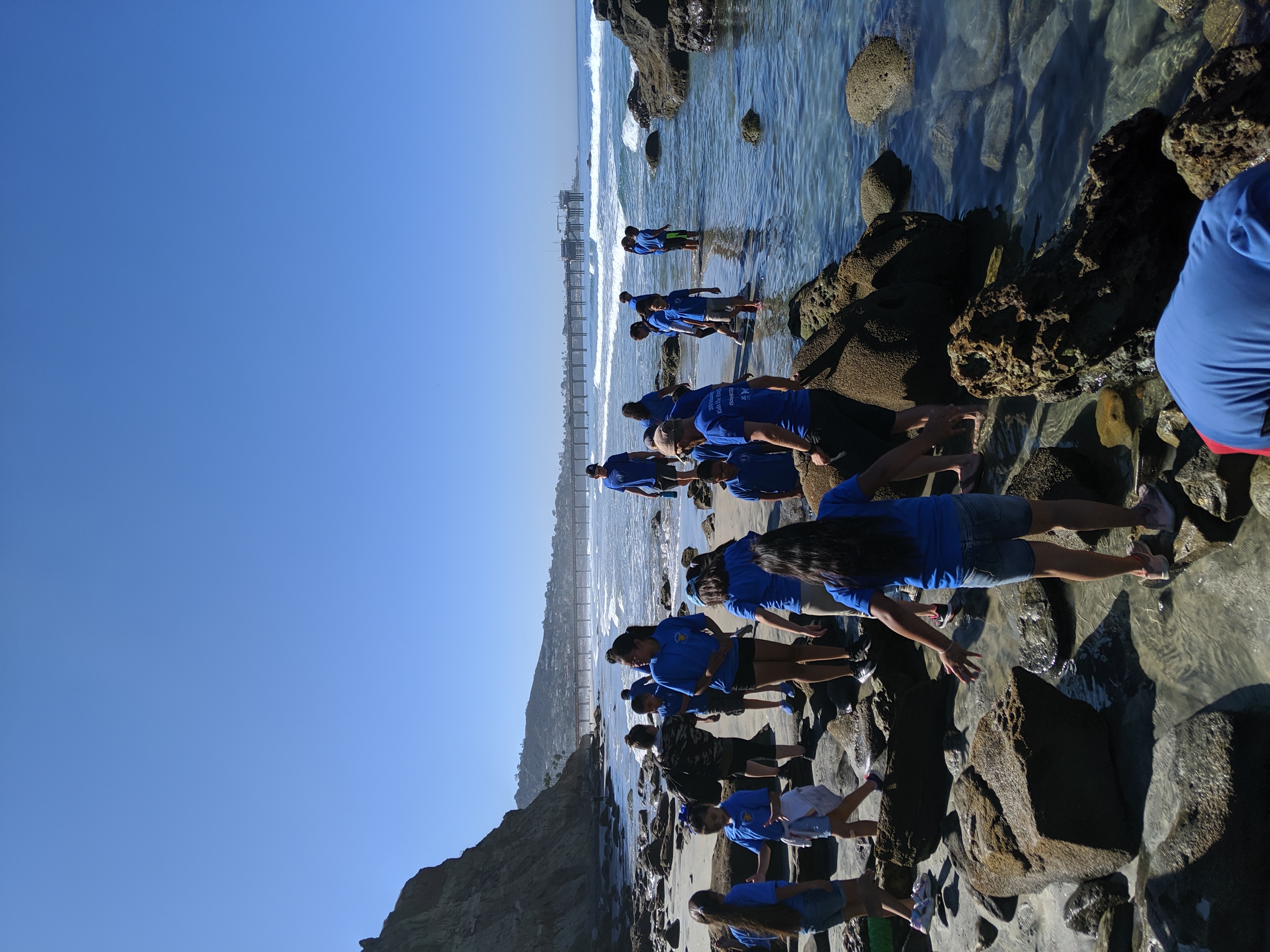Coastal upwelling regions threatened by increased ocean acidification
Increased acidification shown to limit iron availability, a critical element for the survival of phytoplankton, the foundation of the oceanic food web
La Jolla, CA—November 10, 2023—Scientists at the J. Craig Venter Institute (JCVI) and Scripps Institution of Oceanography at the University of California San Diego have for the first time shown that increased acidification of ocean water in an upwelling region reduces the availability of iron for phytoplankton, thereby threatening to reduce overall phytoplankton productivity. Given that phytoplankton sit at the base of the oceanic food web, acidification is a concern to all life in these upwelling regions. Upwelling regions are among the most productive due to the concentration of nutrients brought from deep water, driven by coastal winds. Results for this study are published in the journal Nature Communications.
While discussing the impact of this research, lead author Robert Lampe, a graduate student at Scripps Oceanography and JCVI stated, “This study provides critical insight into how key organisms in this ecosystem may respond to future conditions. Our current projections for how organisms and biological processes will respond to climate change are still quite uncertain and this brings us a step closer towards understanding change in the ecosystem.”
Aboard the R/V Atlantis, a research vessel owned by the U.S. Navy and operated by Woods Hole Oceanographic Institution (WHOI), JCVI and Scripps scientists spent 32 days in the California Current, a cold-water Pacific Ocean Current that runs southward along the western coast of North America. The team began their experiments—to better understand how acidification affects marine microbial life—near Big Sur, California and moved progressively farther from shore, performing four experiments in total.

Each of the experiments consisted of carefully collecting water with a trace metal clean rosette, a special sampling device built with minimal exposed metal on the overall structure and none inside the collection bottles to prevent water from being contaminated with iron. Once on the ship, the bottles of ocean water were taken into positive pressure clean areas for experimentation. There, carbon dioxide was bubbled into the water, closely matching the phenomenon in nature of carbon dioxide dissolving in the water, making it more acidic and reducing the bioavailability of iron. The primary driver for the increase in carbon dioxide and resulting ocean acidification is burning fossil fuels.

In the lab, RNA and proteins were extracted from the samples. Using a “multi-omics” approach, the researchers were able to get a molecular-level view of both the types of organisms present as well as what mechanisms were in play during the acidic water stress test.
The phytoplankton appeared to take advantage of alternative biological mechanisms to absorb iron that are less hindered by acidification and reduced their overall iron utilization. Growth, nutrient absorption, and community compositions remained largely unaffected, suggesting that these strategies may confer short-term resistance but longer-term exposure to acidification may result in a reduction of photosynthetic activity and contractions in the phytoplankton community.
Senior author Andrew Allen, Ph.D., a professor at JCVI and Scripps remarked, “Potential impacts of ocean acidification on diatoms—which represent around three quarters of all phytoplankton—have not been obvious. This study shows that if we look at plankton ecosystems with an increased sensitivity, with our experimental design and methodology, we can see significant impacts of ocean acidification on diatoms.” He continued, “Ocean acidification clearly exacerbates iron stress in diatoms. Interestingly, diatoms apparently have a battery of diverse iron uptake mechanisms that we were not previously aware of.”
In addition to Dr. Allen, the project was conducted under the direction of co-principal investigators Professor Katherine Barbeau, Ph.D. and Associate Professor Andreas Andersson, Ph.D. at Scripps in conjunction with UC San Diego’s CCE Long Term Ecological Research (LTER) program. Collaborators included Associate Professor Erin Bertrand, Ph.D. at Dalhousie University and Professor Miroslav Oborník, Ph.D. at Czech Academy of Sciences.
Funding for the project was provided by the National Science Foundation (grants OCE-1756884, OCE-1637632, OCE-1756860, and OCE-2224726), National Oceanic and Atmospheric Administration (grant NA19NOS4780181), and Simons Foundation Collaboration on Principles of Microbial Ecosystems (PriME) grant 970820.
The complete study, “Short-term acidification promotes diverse iron acquisition and conservation mechanisms in upwelling-associated phytoplankton,” may be found in the journal Nature Communications.

The NSF funding with additional support from JCVI provided an educational outreach opportunity that allowed the team to bring elementary school children to Ellen Browning Scripps Memorial Pier, located in La Jolla, California, jutting into the Pacific Ocean, for hands-on ocean research activities. Through the League of Extraordinary Scientists and Kids to King Tides education programs, the children learned about sampling plankton, visited tide pools, and used microscopes on JCVI’s Discover Genomics Mobile Laboratory. For some of the participating children, it was the first time they had ever been to the ocean.
About J. Craig Venter Institute
The J. Craig Venter Institute (JCVI) is a not-for-profit research institute in Rockville, Maryland and La Jolla, California dedicated to the advancement of the science of genomics; the understanding of its implications for society; and communication of those results to the scientific community, the public, and policymakers. Founded by J. Craig Venter, Ph.D., the JCVI is home to approximately 120 scientists and staff with expertise in human and evolutionary biology, genetics, bioinformatics/informatics, information technology, high-throughput DNA sequencing, genomic and environmental policy research, and public education in science and science policy. The JCVI is a 501(c)(3) organization. For additional information, please visit www.jcvi.org.
Media Contact
Matthew LaPointe, mlapointe@jcvi.org, 301-795-7918